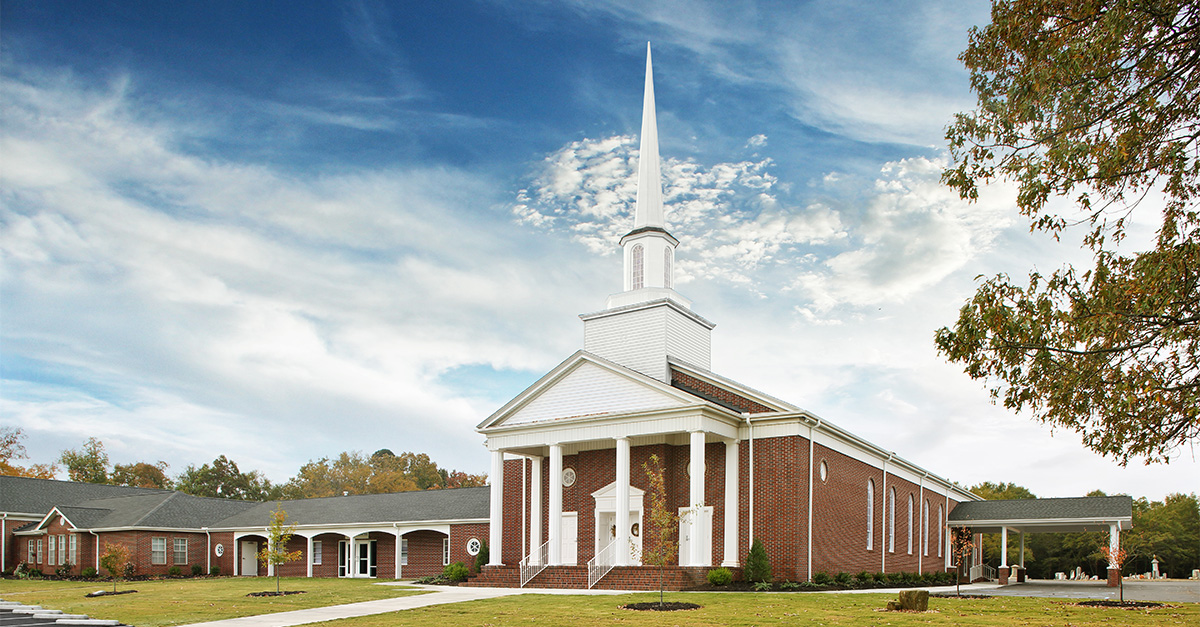


Get a free copy of Parental Rights & Education when you subscribe to our newsletter!

“Christian women have been tasked with an incredibly important and humbling job, and the sooner we realize that, the sooner we will become so busy working within God’s design that we won’t even have time to think about what it might be like to pastor a church.”
–REAGAN ESCUDÉ SCOTT
The Southern Baptist Convention (SBC) recently drew a line in the sand to affirm their complementarian view that pastoral leadership does not belong to a woman. Since then, it’s caused a bit of an uproar among egalitarians, and the question of whether or not women can be pastors continues to be a hot topic of conversation in Christian circles.
I’ve previously written on why complementarianism is biblical and why women who call themselves pastors are in rebellion. It’s a very serious matter, and I think, very often, we take too lightly how influential feminism has been within the Church.
Whether or not this is its outward profession, secular feminism is rooted in a woman’s desire to rule over men. We call it “egalitarianism,” but the reality is that it is feminism that has crept its way into the local church so that women can rule over men from the pulpit.
Over the course of the now 60-year-plus feminist movement, many women have woken up to the fact that there is a reason that women were not created to be like men. These women have figured out that their desire is really to be in their homes, raising their children and loving their husbands instead of climbing the corporate ladder to beat their male coworkers to a promotion. They’ve learned to appreciate the tenacity, the might, and the protection provided only by masculine men, and they’ve realized that their strengths lie in other areas.
The same applies for women in the Church — although there are still some who have not yet caught on to how unfulfilling, dissatisfying, and rebellious it is to attempt the role of a man. The truth is that women don’t need to be pastors in order to have spiritual influence. This doesn’t mean that women are weak or stupid or lacking in talent. It just means that they have great potential for spiritual influence elsewhere.
Christian mothers, for example, often underestimate task laid before them. In all of the cooking and the cleaning and the entertaining and the disciplining, women tend to forget that their primary role is to disciple their children. A mother’s ministry is her home. God has given her children to steward and have influence over so that they one day might grow up to know Christ and be equipped to disciple the next generation. Women were not created to bear the burden of shepherding the local church; rather, they were created to disciple the Church of tomorrow.
Christian women have been tasked with an incredibly important and humbling job, and the sooner we realize that, the sooner we will become so busy working within God’s design that we won’t even have time to think about what it might be like to pastor a church.
Titus 2:4 exhorts us to train young women to love their husbands and children. It’s of great significance that we are not only to raise and disciple our own children but we are also to teach younger women how to raise and disciple their children. What a high calling to which we have been called in the name of Christ!
The local church offers many other opportunities to minister as well. Teaching children’s Bible classes, cooking meals for aging women or widows, or leading a women’s Bible study are all God-honoring and obedient ways to have spiritual influence. Most importantly, sharing the Gospel is a task that all Christians are called to do. Often, evangelism and pastoral leadership are conflated by egalitarians who wish to see women in the pulpit, but, unlike leadership, evangelism is not just reserved for men. Evangelism is a way for Christian women to share the glory of Christ with others so that those who have been called by the Father will receive Him for salvation.
Throughout Scripture and throughout Christian history, there are ample examples of women who faithfully ministered to others without rebelling against God’s design for them. Phoebe, Priscilla, Mary, the mother of Jesus, Mary Magdalene, Esther, Lydia, Tabitha, Hannah, and Sarah are just a few examples in Scripture of faithful women who obeyed God and glorified Him in both miraculous and mundane ways. Corrie ten Boom, Elisabeth Elliot, Amy Carmichael, and Susannah Spurgeon are just a few modern examples of women who didn’t need to be in a pastoral role to have great influence for the Kingdom.
Whatever task the Lord has put before you is the task He has called you to do today. Volunteer in your church, start a Bible study for high school girls, memorize Scripture with your children, and trust that God knew what He was doing when He gave the job of a pastor to men. Be content in His calling for you because much fulfillment and sanctification will come of it.
Follow Reagan on Twitter! @thereaganscott
Ready to dive deeper into the intersection of faith and policy? Head over to our Theology of Politics series page where we’ve published several long-form pieces that will help Christians navigate where their faith should direct them on political issues.
Christian conservative news and issues that matter. Curated just for you!
